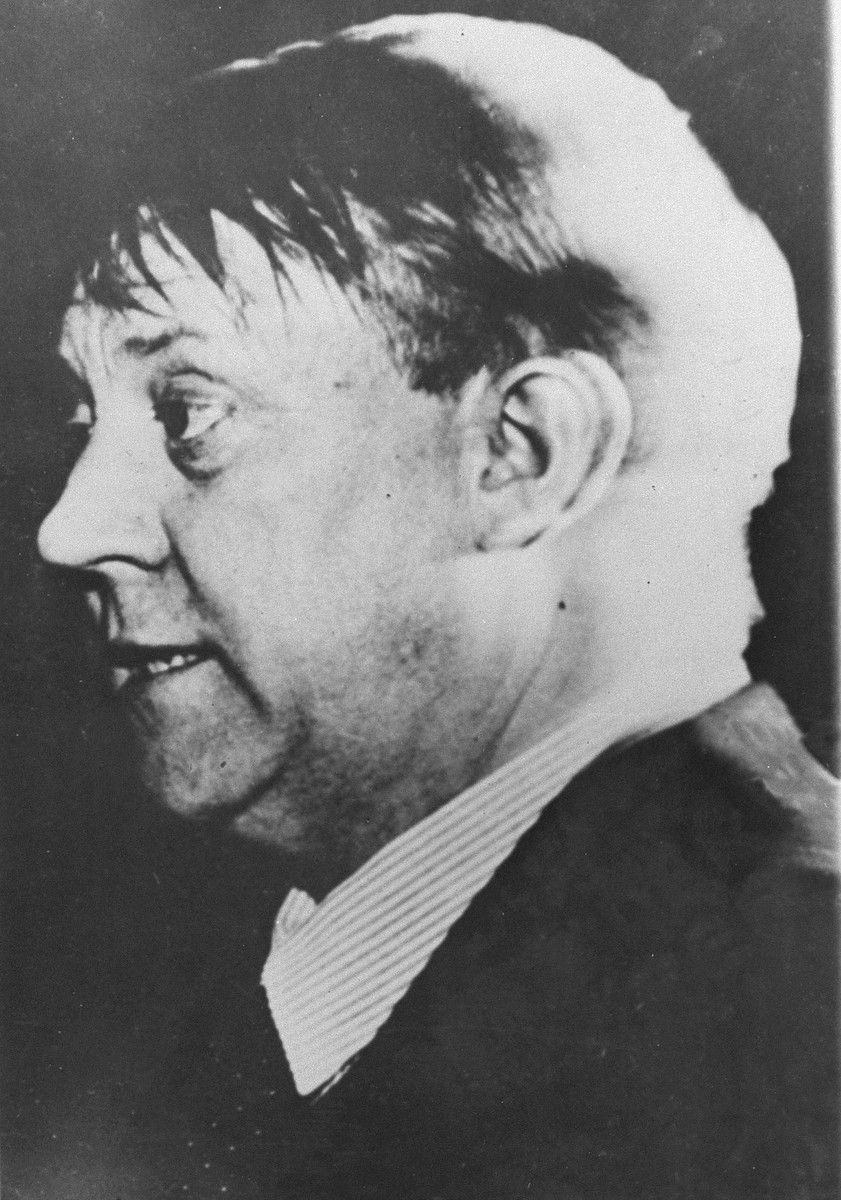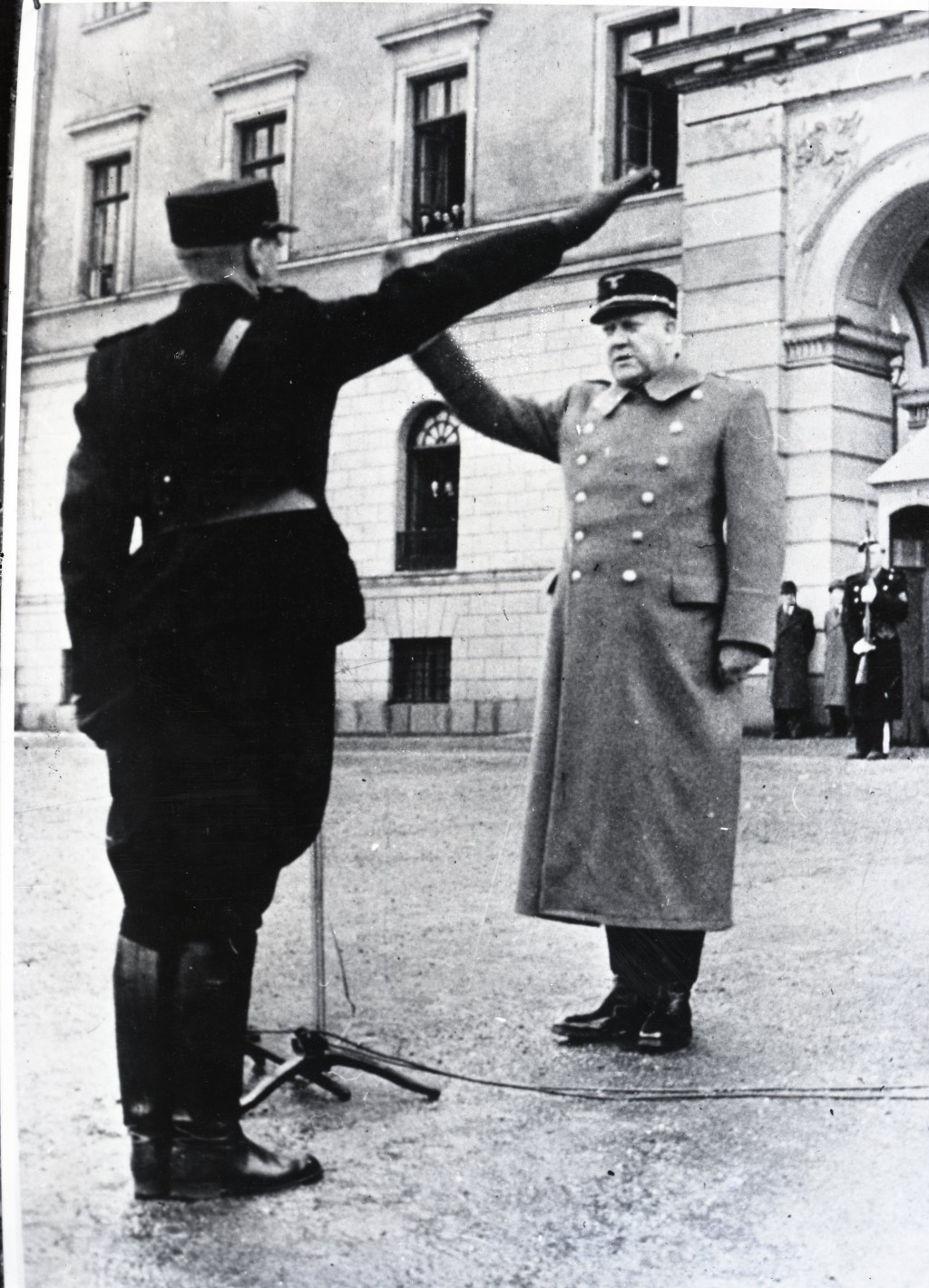Vidkun Quisling
Vidkun Quisling was a Norwegian fascist and Nazi collaborator. He served as Minister President of Norway from 1942 to 1945 in a Nazi puppet state. His last name has since come to mean “traitor” or “collaborator.”
Key Facts
-
1
Quisling was one of the founders of Nasjonal Samling (National Union or National Gathering), a Norwegian far-right party that collaborated with the Nazis.
-
2
During the German invasion of Norway in 1940, Quisling attempted to stage a coup. His government lasted less than a week before the Nazis replaced him with Reichskommissar Josef Terboven.
-
3
Quisling was arrested for war crimes in 1945. He was executed on October 24, 1945.
Early Life and Career

Vidkun Abraham Lauritz Jonssøn Quisling was born on July 18, 1887, in Fyresdal in southern Norway. His parents were Jon Lauritz Quisling and Anna Caroline Bang. His father was a Lutheran minister and genealogist. His mother came from a wealthy family in Grimstad.
In 1905, Quisling entered the War College. Of the 250 cadets, he had achieved the highest score on the notoriously difficult entrance exams. From the War College, Quisling entered the Military Academy to pursue a career in the army. Quisling graduated with the best grades in the history of the Academy since its founding in 1817. The King of Norway rewarded him by inviting the young Quisling to an audience with him.
In 1911, Quisling joined the General Staff of the Norwegian Army. Over the next 18 years, he traveled extensively on diplomatic and humanitarian missions. Quisling lived in Russia, Finland, England, France, Armenia, Switzerland, and Germany. His five years in Russia, however, had the greatest impact on Quisling’s political thought.
Quisling called his political philosophy “Universism,” a term he had borrowed from the Dutch scholar J. J. M. de Groot. In a 700+ page manuscript, Quisling attempted to explain the entire world by combining Christian thought with contemporary physics to produce a “new world religion.” Universism also attempted to provide a path for bringing all nations together in “world unity.” The goal was to develop a collective consciousness for global unity by passing a consciousness from the individual level to the family level to the national level. Eventually, Universism took on a racial element as Quisling incorporated a belief in Nordic racial superiority. He asserted that the path to world unity could only be achieved under Nordic leadership, working against the Jews.
Quisling permanently returned to Norway in 1929. He served as the Norwegian Minister of Defense between 1931 and 1933 as a member of the Agrarian Party. When the Agrarian Party refused to appoint Quisling as party leader, he left to form his own party. In May 1933, he co-founded the Nasjonal Samling (National Unity) political party. Quisling also became the party’s fører, or leader. The party’s platform was based on four principles:
- a corporatist vision of society
- an emphasis on nationalism and Christianity
- paternalism of the state
- economic autarky.
However, the Nasjonal Samling was not successful in elections. In the 1933 Norwegian parliamentary elections, the party took 2.2% of the vote. In 1936, the last elections held before the outbreak of World War II, it took only 1.8% of the vote. Neither result was enough for the party to ever hold a seat in the Storting, the unicameral Norwegian Parliament.
German Invasion and Quisling’s Attempted Coup

At the start of the World War II in 1939, Norway—like all of Scandinavia—gained new strategic importance for Germany. Erich Raeder, head of the German navy from 1939 to 1943, was concerned about maintaining German naval access to the North Sea and the Atlantic Ocean via naval bases on the Norwegian shoreline. In December 1939, first Raeder and then Hitler met with Quisling. Quisling suggested the British were planning to move into Norway for their own strategic needs. Alarmed, Germany began planning Operation Weserübung, the invasion of Denmark and Norway. The German invasion of Norway under General Nikolaus von Falkenhorst began on April 9, 1940.
While the German offensive got underway, Quisling took to the Norwegian airwaves in the first-ever attempted coup d’état by radio. He announced to the Norwegian public that they should welcome, rather than resist, the advancing Germans. He also announced a new government and declared himself the new head of state. Two hours later, Quisling repeated his radio announcement. This time, he issued a warning that “any refusal” to cooperate with the new government would “henceforth involve the most serious consequences for the individuals concerned.”
Quisling’s coup only lasted six days. On April 15, 1940, Nazi leadership forced him to step down. King Haakon VII refused to accept a Quisling government, meaning Germany had to continue the Norwegian invasion to solidify control. Norway fell to Germany on June 19, 1940. The king and Prime Minister Johan Nygaardsvold went into exile in London.
Minister-President and War Years
Hitler had met Quisling in December 1939 and was generally impressed. Initial plans for the German occupation had tentatively placed Norway under Quisling’s control. However, Nazi leadership soon realized how little popular support Quisling had. On April 24, 1940, Hitler thus appointed Josef Terboven, the Gauleiter (district leader) of Essen, as Reichskommissar (administrator). Von Falkenhorst retained military control. In addition, all political parties other than Nasjonal Samling were outlawed. As the leader of Nasjonal Samling, Quisling was given a position as head of the cabinet under Terboven. In early 1942, Terboven appointed him Ministerpräsident (prime minister) of a Nasjonale Regjering (National Government) that was essentially a puppet state under German control.
One of Quisling’s first acts in this role was to reinstate the so-called jødeparagrafen (Jewish paragraph) of the Norwegian constitution. This paragraph, which had been removed in 1851, prevented Jews from immigrating to Norway. From October through November 1942, Quisling signed a series of laws that enabled the arrest of all Norwegian Jewish men, the confiscation of all Jewish-owned property and assets, and the registration of all Norwegian Jews.
There were approximately 2,100 Jews in Norway at the time of the German invasion. Among them were about 350 German and Austrian refugees who had sought haven from Nazi Germany. A month after the mass arrest of Jewish men, Nazi officials working with the Nasjonal Samling in Norway began to arrest women and children. Acting on plans that had been previously developed, the Norwegian police arrested Jews throughout Norway and brought them to Oslo for deportation to Germany. The first deportation of 532 Jews left Oslo on November 26, 1942. Another 158 were deported on February 25, 1943, followed by transfers of smaller groups. In all, 772 Norwegian Jews were deported from the Norwegian capital to Germany. From Oslo, Norwegian Jews were sent by ship to the German port city of Stettin (today Szczecin in Poland). They were then transferred by train to Auschwitz. Most were gassed immediately upon arrival at Auschwitz. However, 34 Norwegian Jews—all men—ultimately survived to see the end of the war. Fortunately, many Jews received advance warnings of the roundups from Norwegian policemen and members of the underground. Many of Norway's Jews, about 1,000, escaped to neutral Sweden with the aid of the underground. Many others went into hiding.
Postwar
When World War II ended in 1945, the Norwegian government-in-exile returned from London and promptly arrested Quisling. He was charged with high treason, aiding a foreign government, murder, embezzlement, theft, and other crimes. In court, Quisling argued that he acted in Norway’s best interest and always with the goal of restoring Norwegian independence. The court was unconvinced, however, and Quisling was convicted and sentenced to death. He was executed on October 24, 1945, at the Akershus Fortress in Oslo.
Quisling to “quisling”
Today, the word quisling has become synonymous with “traitor,” a use that began during the war. On April 19, 1940—a mere ten days after Quisling’s coup—the Times of London published an editorial pondering Quisling’s linguistic infamy:
“We should all be profoundly grateful to Major Quisling. He has added a new word to the English language … as a plain synonym for ‘traitor.’ … To journalists and other writers, weary of racking their brains or raking the well-thumbed pages of ROGET [sic] in search of alternatives, the word ‘Quisling’ is a gift from the gods. If they had been ordered to invent a new word for ‘traitor’ and given carte blanche with the alphabet, they could hardly have hit upon a more brilliant combination of letters.”
The word was likely assured longevity once it was picked up by the British Prime Minister Winston Churchill. In his 1941 speech at St. James’s Palace, Churchill referred to “a vile race of Quislings.” He described the term as “a new word which will carry the scorn of mankind down the centuries.” When Churchill addressed the United States Congress a few months later, he again referred to “filthy quislings,” and the word gained popularity. The term continues to be applied to political figures who collaborate with outside powers, especially invading forces. However, it is also used as a general term for a traitor. Outside of Norway, the word quisling has outlasted the memory of Vidkun Quisling himself.
Footnotes
-
Footnote reference1.
Oddvar K. Høidal, “Vidkun Quisling and the Deportation of Norway’s Jews,” Scandinavian Studies 88, no. 3 (2016): 270-294.
-
Footnote reference2.
“Quisling is as Quisling Does,” The Times (London), 19 April 1940, 7.

